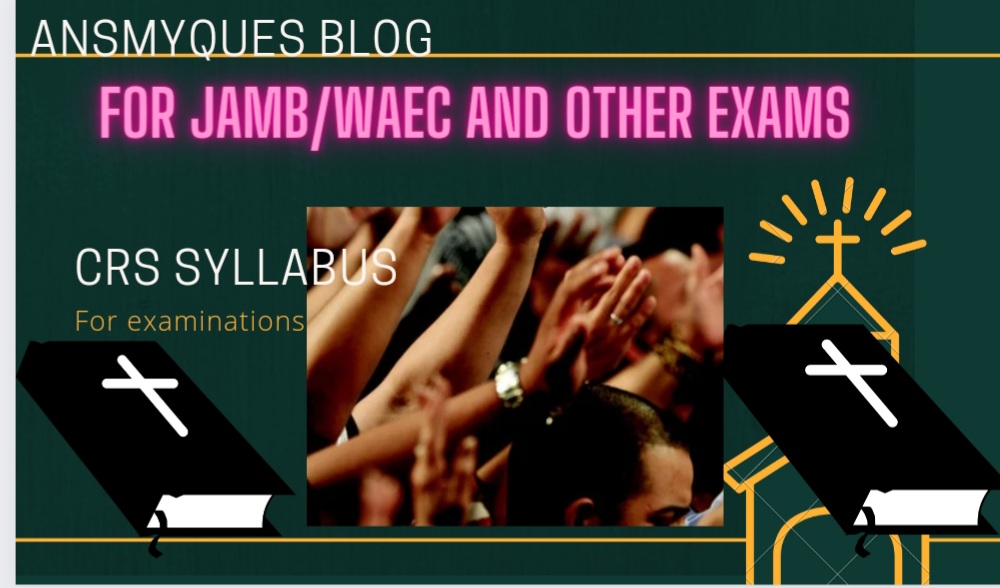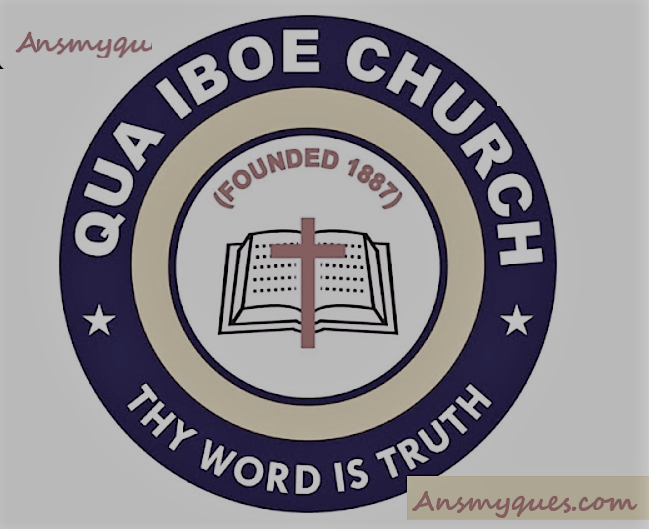UNILAG JUPEB: GOVERNMENT MOCK EXAM QUESTIONS AND ANSWERS 2022/23
- UNIVERSITY OF LAGOS
SCHOOL OF FOUNDATION STUDIES MOCK EXAMINATION 2021/2022 SESSION
GOVERNMENT – MSS-J135
Instruction: Answer ALL questions in Section A and FOUR (4) questions in Section B
Time Allowed: 2 hours
Section A: Answer all questions in this section
1. What gives the state the legal backing and distinguishes it from other political organisations?
A. People
B. Territory
C. Government
D. Sovereignty
2. What political activity is a pattern of learning attitudes, values and orientations?
A- political emancipation
B. political socialisation
C. political articulation
D. political consolidatio
3. The process of getting involved in the political activity of a society is called..
A. political education
B.political philosophy
C.political participation
D. political rascality
4. The classical idea of direct democracy originated from…….
A. Britain
B. Greek city states
C. United States
D. France
5. Which of the following is not an organ of Government?
A. executive
B. legislature
C. judiciary
D. bureaucracy
6. The following is not a feature of constitutionalism………
A. rule of law B. separation of powers
C.supremacy of the constitution
D. Anarchy
7. The unrestricted power of the state over its citizens is underlined by……….
A. sovereignty B. legitimacy
C. authority D. national power
8. Politics, according to Harold Lasswell, is……….
A. activities of political parties and pressure
B. authoritative allocation of values
C.determination of who gets what, when and
how?groups
D. activities associated with the government of a state.
9. Sovereignty in an absolute monarchical system is vested in
A. constitution B. people
C. parliament D. king
10. Government is a necessity in human society because it maintains..
A. different human associations
B. numerous ethnic groups
C. law and order
D. peace and conflicts
11. One of the following pairs will guarantee a
free and fair election.
A. Secret ballot and media censorship
B. Choice for the electorate and limited adult.
C. Equal opportunity for candidates and Independent judiciary
D. Freedom to join parties and heavy mobilization of armed forces
suffrage
12. Which one of the following does not cause bureaucratic dysfunction?
A. Departmentalium
B. Officialism and red-tapism
C. Authorised use of personal information
D. Corruption
13. One of the disadvantages of proportional representation is that it………
A. promotes free expression
B. reduces party discipline
C. allows representation of minorities
D. ensures one man, one vote and equal value
14. The following are components of electoral system except………….
A. methods of casting votes and deciding the
B. rules relating to the administration of election
C. delineation of constituencies
D. assisting candidates and political winner
parties to win
15. Party system is often determined by…….
A. number of political parties that register with the electoral body
B. network of relationship that exists between/among the parties,
C ideology alone
D. geographical representation
16. The first step in the policy process model is typically
A. policy evaluation
B. agends setting
C. policy formulation
D. policy initiation
17. According to Dye, which of the following is not part of the policy process?
A. agenda setting
B. policy evaluation
C.problem identification
D. policy circuit
18. Nigeria has been the graveyard of different policies as a result of the issue of faulty ………
A. Policy formulation
B. Policy Implementation
C. Policy Evaluation
D. Policy Adoption
19. Public policy is
A. what the government chooses to do or not
B. what to do only
C. what an individual chooses to do
D. what is affecting the government
20. Public opinion is the view held by
A government officials alone
B. majority of the people
C. international community alone
D. the Press
21. The first political party in Nigeria was the
A. National Council of Nigeria and Cameroons (NCNC)
B. Nigerian National Democratic Party (NNDP)
C. Nigerian Youth Movement (NYM)
D. Action Group (AG)
22. Which of the following political parties was associated with socialist policies?
A. NPC
B. NCNC
C. NDF
D. AG
23. Who established the National Republican Convention (NRC) and Social Democratic Party (SDP) that ushered in the botched Third Republic?
A. Civilian politicians
B. Nigerian masses
C. Anti-military activists
D. The military
24. Which political party won the 1979 Presidential Election?
A. Unity Party of Nigeria (UPN)
B. Nigerian Peoples Party (NPP))
C. Great Nigerian Peoples Party (GNPP)
D. National Party of Nigeria (NPN)
25. The major preoccupation of a political party is to
A. champion the interest of the members only.
B. gain access to the state coffers.
C. put loyal party members into lucrative positions of power
D. capture political power and the governing machinery of the state.
26. The bloodiest and longest anti-colonial war in Africa was in
A. Algeria
B. Ghana
C. Gambia
D. Nigerin
27. The resisted the British conquest of Kumasi.
A. Fante
B. Ashante
C. Idoma
D. Ewe
28, Which of these pairs of monarchs were conquered and banished from their kingdoms by the British?
A. King Ovonranwen of Benin and Jaja of Opobo
B. Oranmiyan of Oyo and Oduduwa of Oyo-lle
C. Oduduwa of Oyo-lle and Sultan of Sokoto D. Olu of Warri and Sultan of Sokoto
29. Which colonialists believed that Africans were backward and needed to be guided to attain civilization?
A. Germans and Belgians
B. Portuguese
C. French
D. British
30. British nationals came to Africa to……….
A. educate Africans.
B) exploit Africa
C. civilise Africa
D. industrialise Africa
31. Which of these traditional systems of government was non-centralised?
A. Yoruba traditional system
B. Hausa/Fulani traditional system
C. Igbo traditional system
D. Benin traditional system
32. The multi-ethnic nature of post-colonial African states led to their adoption of…….
A Federalism system
B. Unitary system
C. Presidential system
D. Parliamentary system
33. What were the two forms of citizenship that obtained in French colonial Africa?
A. Foreigners and indigenes
B. Settlers and non-settlers
C. Subjects and citizens
D. Whites and blacks,
34. Apartheid regime in South Africa was founded on racial ideology that revolved around………
A. Black supremacy
B. African supremacy
C. Migrants supremacy
D. White supremacy
35. The Policy of Assimilation is associated with……….
A. British colonial rule in Africa
B. Spanish colonial rule in Africa
C. Portuguese colonial rule in Africa
D. French colonial rule in Africa
36. Which of the following is not a feature of democracy?
A. Free, fair, periodic and multi-party elections B. Free Press
C. Gagged opposition
D Independent judiciary
37. The post-colonial state in Africa was a ……….
A. strange state, superimposed from outside B. creation of indigenous Africans:
C. by-product of negotiation and consensus
D. natural state that evolved from the expansion of families to clans and communities
38. The African Union currently consists of how many member states?
A 35
B. 54
C. 53
D.52
39. Warrant Chiefs is a feature of ……… colonial administration.
A. French
B. Belgian
C.British
D. Portuguese
40. In French colonial Africa, the Policy of Assimilation was replaced with ………
A. Policy of Assassination
B. Policy of Association
C. Dual Citizenship
D. Increase in women representation
1. D
2. B
3. C
4. B
5. D
6. D
7. A
8. C
9. D
10. D
11. C
12. D
13. B
14. D
15. A
16. C
17. D
18. D
19. A
20. B
21. B
22. D
23. D
24. D
25. D
26. A
27. B
28. A
29. C
30. B
31. C
32. A
33. C
34. D
35. D
36. C
37. C
38. A
39. C
40. B
Instruction: Answer FOUR questions in this Section. One (1) question from each Course.
Section B
GOV 001: Answer ONE question in this Section.
(a) What do you understand by Legitimacy? (b) Explain five (5) factors that can increase the legitimacy of a democratic government.
2. (a) Explain jus soli and jus sanguinis forms of citizenship
(b) What are the duties of a citizen?
GOV 002: Answer ONE question in this Section
3. (a) Define propaganda
(b) Explain six (6)functions of propaganda
4. (a) Define the concept of “Foreign Policy” (b) What are the factors that determine Nigeria’s foreign policy”
GOV 003: Answer ONE question in this Section
5. (a) Explain Military rule (b) What are the negative impacts of military intervention in African politics?
6. (a) What is Indirect Rule? (b) Explain four factors that led to the introduction of Indirect Rule in colonial Nigeria.
GOV 004: Answer ONE Question in this Section
7. Compare and contrast British and French colonial administrations in West Africa
8. Discuss Five (5) challenges faced by the ECOWAS.


